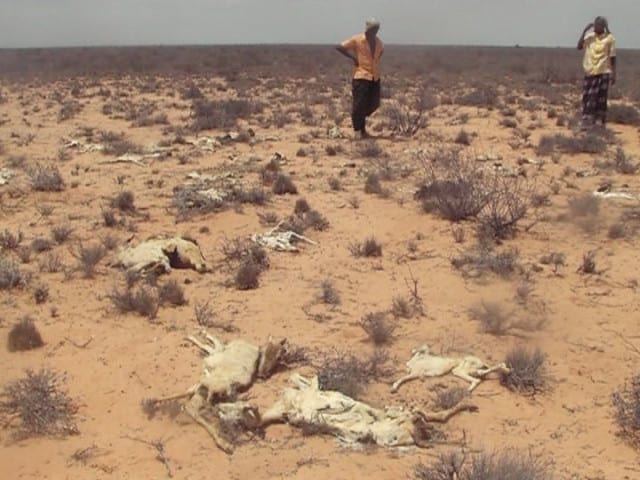Somalia and the United Nations have said they are scaling up humanitarian operations to support early action to help mitigate the impact of the worsening drought in the country.
About 2.3 million people in 57 out of 74 districts, nearly 20 percent of the population, in the affected districts, are ravaged by serious water, food and pasture shortages as water pans and boreholes have dried up, the Somali government and the UN said in a joint statement issued on Thursday evening.
“The situation is grave. Families are losing their livestock, a key source of livelihood in Somalia, and may starve to death in the coming months,” Minister of Humanitarian Affairs and Disaster Management Khadija Diriye said in the statement.
“I am particularly worried about children, women, the elderly and disabled people who continue to bear the brunt of Somalia’s humanitarian crisis,” Diriye added.
She said authorities, local communities and humanitarian partners are ramping up responses and reprogramming their activities to address critical emerging needs.
The UN Central Emergency Response Fund is allocating 8 million U.S. dollars for the drought response and the Somalia Humanitarian Fund is making a reserve allocation of 6 million dollars to help tackle the drought.
The UN said nearly 100,000 people have abandoned their homes, especially in central and southern areas, in search of food, water and pasture for their livestock, exposing their families to the danger of resource-based conflict over the diminishing resources.
According to the UN, the deteriorating situation has compounded vulnerabilities at a time when the number of people who need assistance and protection in Somalia is forecast to rise by 30 percent from 5.9 million to about 7.7 million in 2022.
Additionally, 71 percent of all Somalis currently live below the poverty line, especially in areas where humanitarian access is a challenge, the UN said.
Adam Abdelmoula, UN resident and humanitarian coordinator for Somalia, said those affected by the drought have already endured decades of conflict, climatic shocks and disease outbreaks.
“A perfect storm is brewing in Somalia. We must act now to prevent a slide into the crippling kind of drought and even famine conditions experienced in previous years,” Abdelmoula said.
Climate projections show that Somalia is on the verge of a fourth consecutive failed rainfall season and is at the risk of a potentially extreme situation by April 2022.
According to the UN, Somalia is on the frontline of climate change and has experienced more than 30 climate-related hazards since 1990, including 12 droughts and 19 floods.
The frequency and severity of climate-related hazards is increasing, the UN said, adding that the lack of access to safe, portable water and hygiene and sanitation facilities has heightened the prospect of water-borne diseases.





